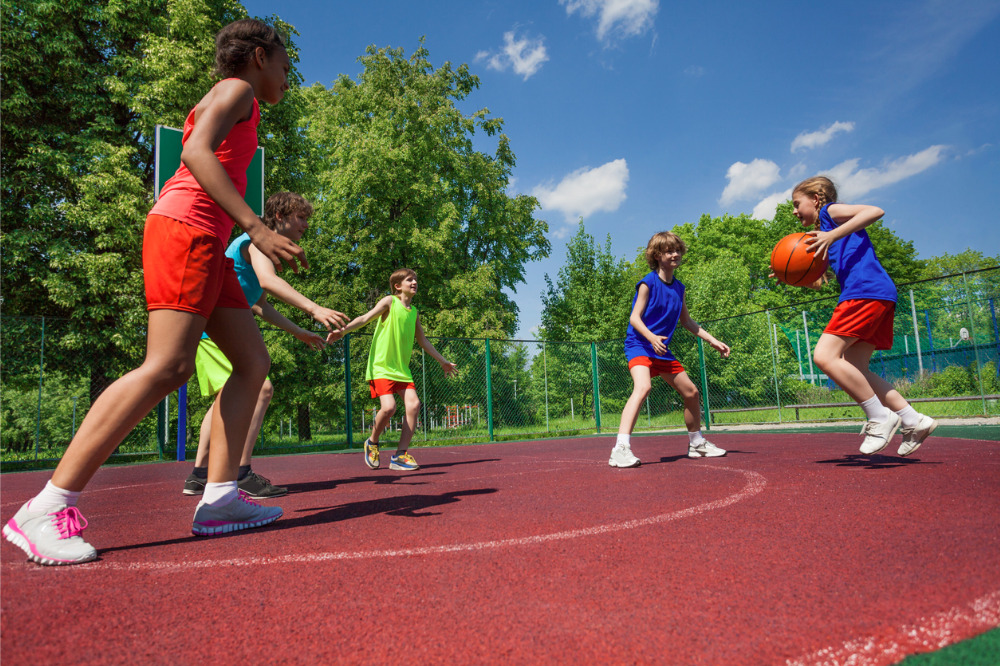
Studies have shown that taking part in organised sport during adolescence is associated with a 10-20% reduction in risk for mental health problems compared with teens who drop out of sports.
Fortunately, an estimated 65% of Australian children participate in organised physical activity outside of school hours at least once a week. However, regular physical activity has been on the wane among young people in recent years, and during the COVID-19 pandemic, this trend has become worse.
A recent survey found that an overwhelming number of principals and parents reported a decrease in physical activity due to the loss of sport in 2020. Needless to say, reversing this worrying trend in 2021 is a goal that many schools will be taking seriously.
While the programs being used by schools to get more kids active are likely to vary, new research has shown how a sports-based resilience training course, dubbed ‘Ahead of the Game’, improves both physical and mental health in teenage boys.
Researchers from the University of Wollongong (UOW) teamed up with The Movember Foundation to create the course, which was tested on 350 boys aged between 12-18, across three different sports including soccer, rugby league and swimming, over a season-long period.
Comprising face-to-face workshops and online training, ‘Ahead of the Game’ is thought to be the only program of its kind that demonstrates both efficacy and carries no evidence of harm. It can be adapted to all sporting codes and takes place in community sports clubs.
“The program leverages the engaging and motivating context of sport to teach basic principles of mental health literacy and resilience in an accessible and understandable way,” Dr Stewart Vella, the principle investigator of the study and Senior Lecturer in UOW’s School of Psychology, told The Educator.
“The key principles that underpin the effectiveness of the program can be used by school leaders and principles in helping young men, including using sport to teach skills that underpin mental health and resilience, taking lessons outside of the classroom and into sports settings, and, leveraging the team nature of many sports to facilitate help provision among peers”.
Studies have also shown physical exercise is also lacking among young women, who are generally less active than boys the same age.
According to recent studies on physical activity, Australia ranks as one of the worst performers for 11–17-year-old girls globally.
More than 90% of girls surveyed reported having insufficient levels of physical activity, with a marked decrease in sport participation by girls during the 12–14 years of age and from 17+ years.
However, some female role models are going above and beyond to tackle this issue. One of them is Parris Laurie, who at the young age of 26 is both a member of the AFL Women's (AFLW) West Coast Eagle’s team and head of women’s football at Mater Dei College in Edgewater.
“Over the past 18 months the most inspiring and uplifting outcomes have been the achievements of my students in the community,” Laurie told The Educator.
“A large number of my students have progressed from community football to WAFL Women’s football, many at entry age [youngest players in the team]. I have had a student represent the state as an underage player in U18’s, going on to debut this year in WAFLW League”.
Laurie said multiple other students have also been chosen in state teams, but unfortunately this was cancelled at the time due to the COVID-19 pandemic.
“This is extremely uplifting as their coach but the most inspiring achievements from my students is those who have been selected as leaders in their community and WAFL clubs,” she said.
“Whether this is Captain of their team or selected as a future leader in the leadership group, the women in the Hawks AFL program are not just performing on field but they are thriving in the community, displaying their ability to lead and inspire in their own football”.


